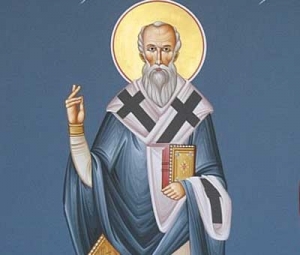Bradley Longfield, The Presbyterian Controversy: Fundamentalists, Modernists, and Moderates (Oxford: Oxford University Press, 1991). This review was published originally in a slightly different form in The Reformed Herald in 1993. It was written for the Reformed Church in the U.S. which publishes the . . . Continue reading →
evangelicals
The Temptation of Influence
These are important days for our brothers and sisters at WTS/Philadelphia.
"Guy Church" – A New Evangelical Fad
John Sawtelle raises some interesting and provocative questions about a new trend. Caveat: If you’re easily offended John’s blog is not the blog for you. There’s frank talk about adult beverages and conjugal relations with one’s wife over there. Consider yourself warned.
iMonk: Evangelicalism's Stock Needs to Drop
Michael explains why. It’s also possible, according to Darryl Hart, that “evangelicalism” doesn’t exist. Mike Horton has argued that “evangelicalism” should be considered just a place to talk, a village green of sort. Clark argues that Reformed Christians are “evangelical” but not . . . Continue reading →
To the Evangelical Nicodemites
Over the last few years there have been a few laments about “Reformed rocks stars.” Carl Trueman has rightly warned against the cult of personality. Now I would like to turn the tables. If we should be concerned about rock stars and . . . Continue reading →
Hart Reviews Crouch on Culture Making
Here.
Mainline, Sideline, or Borderline?
An unsigned editorial posted on Tuesday (12 May 2009) on the Christianity Today website analyzes the new ARIS (American Religious Identification Survey). The news isn’t new. The mainline is shrinking and, according to the CT editorial, “evangelicals” (whoever they are and whatever . . . Continue reading →
Newman’s Unquiet Grave and Non-Confessional Evangelicals
After reading (devouring) Carl Trueman’s excellent book on historiography I took his advice and got (I had to drive to La Jolla during rush hour) and quite enjoyed John Cornwell’s, Newman’s Unquiet Grave: The Reluctant Saint. I knew the outlines of Newman’s . . . Continue reading →
Do Confessional Protestants Have Anything At Stake in the Papacy?
“Be of good comfort, Master Ridley, and play the man. We shall this day light such a candle, by God’s grace, in England, as I trust shall never be put out.” These were among the last words of Hugh Latimer, as he . . . Continue reading →
Machen’s Enemies Then And Now And The Myth Of Influence
Almost thirty years ago, when I first started to become interested in Reformed Christianity I happened to mention it to the Rev Wally Easter, pastor for evangelism at Westminster Presbyterian Church, in my hometown. Wally was a sweet fellow and very graciously . . . Continue reading →
Millennials And The Fallout Of Post-Political Evangelicalism
Young Evangelicals, we are told, leave the faith because Evangelicals have changed political and social behaviors. There is little evidence for that. What evidence that is offered—Trump’s supposed popularity—is more evidence of Evangelicals not changing their political habits than of them changing. . . . Continue reading →
What I Learned From Polycarp About Pearls, Swine, And Modern Evangelicals
In the fall semester I teach two courses on the ancient church. One is a seminar in which we read the Apostolic Fathers (a somewhat arbitrary collection of texts from the second century) as well as other important writers from the period. . . . Continue reading →
One Major Difference Between The Reformed And The Evangelicals
American evangelical religion, whether one traces it to Edwards, Whitefield, and Wesley or to the nineteenth-century revivalists (e.g., Charles Finney), has always been oriented around personalities. Reasonably, American evangelical Christians nurtured in the personality-oriented tradition assume that pattern as the norm when . . . Continue reading →




